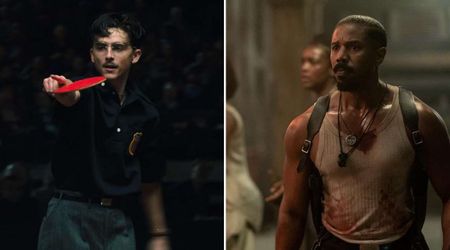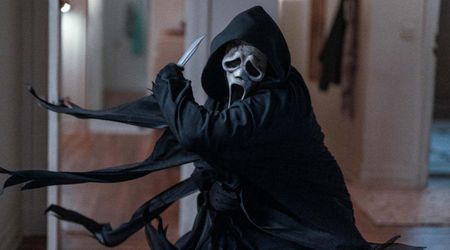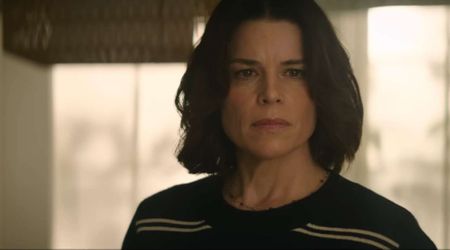Netflix's 'The Life Ahead' Review: Sophia Loren's onscreen comeback is a painfully comforting essay on home

Spoilers for 'The Life Ahead'
When Romain Gary's novel 'The Life Before Us' was first brought to the screen in 1977, actress Simone Signoret won a César award for her performance as the ailing but resilient Madame Rosa. Almost half a century later, the genius Sophia Loren attempts the character only to remind us why doubting her sheer excellence at painting the personality of Madame Rosa would only be stupid. Loren, who's significance in pop culture hasn't dimmed long after the 60s and 70s, reminds us of that same side-eye black and white photo with Jayne Mansfield that gained her infamy. Never for once does the 86-year-old falter from the driven and determined Aushwitcz survivor that her Madame Rosa is and while her veteran status might have come in handy at that, we'd like to believe it was a collective attempt from the entire cast, especially director Edoardo Ponti, Loren's son.
The story of 'The Life Ahead' is a painful one, but Ponti's rendition is also quite comforting at relaying the various elements of trauma and tribulations. Rosa, a former prostitute now takes care of the children of those younger in the profession. Sometimes these are runaway prostitutes who've abandoned their children at Rosa's and at other times it's the next door woman who leaves her toddler in Rosa's daycare. In her years of service, Rosa has made some trusted confidantes, but most are younger than her. She is doing okay, living by herself, but things go haywire when the rebellious Momo (Imbrahimi Gueye) arrives.
Momo, son of another sex worker, has been on the run ever since his father killed his mother for refusing to continue working. Dr Coen (Renato Carpentieri) begs Rosa to take him under her wing, saying he needs a strong woman's direction in life and thus sparks fly but not the kind one would except. It's pretty explosive; the way Momo tries to rebel, disrupt the peace in Rosa's household and threaten the other two boys in her care; it's obvious he doesn't take this gig too seriously, his main objective being earning easy money through drug peddling. Momo is both wise and mature and a child at the same time - the kind that finds out they need to fend for themselves before they are an adult, but ultimately craves for a home to return to.
So what better place for Momo than in Rosa's care, right? From spitting fire at each other to becoming each other's trusted ally - the journey is the most precious when Momo's imaginary friend, the lioness, takes time off once Rosa is in his life. It's a wonderful portrayal of the way children let their imagination run wild just to cope and for Rosa, offering him that shelter and safety is about life coming full circle. Far away from the origins of her trauma, Rosa doesn't really bring them up, but her suffering lies in the way she calls Momo lucky that he can't even pronounce Auschwitz, let alone know the horrors of it. Secure, around her loving neighbor, local shopkeeper and doctor, Rosa still hides out in the basement of her building when the triggers come raining. And soon, it's the two of them hiding in the basement when Rosa's health fails her and she must be admitted to the hospital.
Rosa doesn't want to return to the hospital, her trauma reminds her of the experiments. And the little Momo, unaware of what this old, demented lady is on about, still promises to never let her end up in one. Even when she is taken to the hospital, Momo helps her escape, hiding out in the basement of the house for days until Rosa finally passes away. It's a story of Momo finding a mother and Rosa offering every bit of protection she can, the way she wishes someone had protected her from the life she's grown to live. The way Momo goes from yelling to dancing for a zoned out Rosa just to help her regain awareness is unparalleled. But if this painfully comforting story of bonds rare and unforeseen doesn't pull at your heartstring, Loren and Gueye's chemistry definitely will. The veteran shares such impeccable dynamics with the young actor, like pieces of a puzzle drawn by a magnet. They give and take an eye for an eye at everything but in the best way possible.
After the 70s adaptation, remaking Gary's work would have been a silly ambition, but Ponti does some excellent work with it. Almost as if Mike Flanagan with horror fiction on bloodthirsty murder houses and grounds of purgatory. Ponti takes Gary's work and tweaks it almost with another round of airbrushing to create an imagery that would fit an audience across all demographic. The cinematography excels during scenes where Momo's narrative is sprawled across montages of the setting - a beautiful sepia turning to fading powder blues, before pink and neons of dawn reflect the freedom and hope they are filled with once Momo successfully leaves the hospital with Rosa.
Be it Rosa reminiscing the mimosa tree back home, Momo later bringer her mimosa flowers before she passes on, or the way Rosa dances with her neighbor played by transgender actor Abril Zamora - everything is a tale spun and woven together by the tiniest of details contributing to it. If you had thoughts about revisiting the tale because it's already been done to excellence, this might change your views. For better or for worse, there's no going wrong with giving this film a view.
'The Life Ahead' is now available for streaming only on Netflix.










